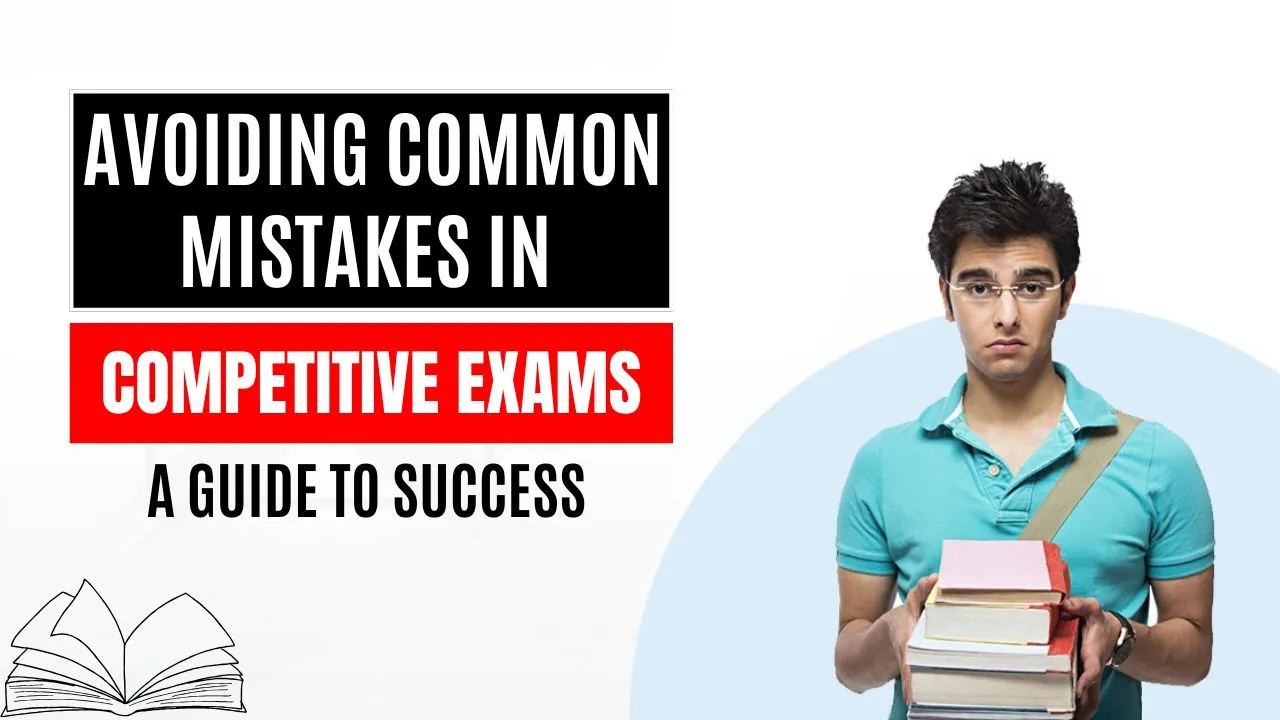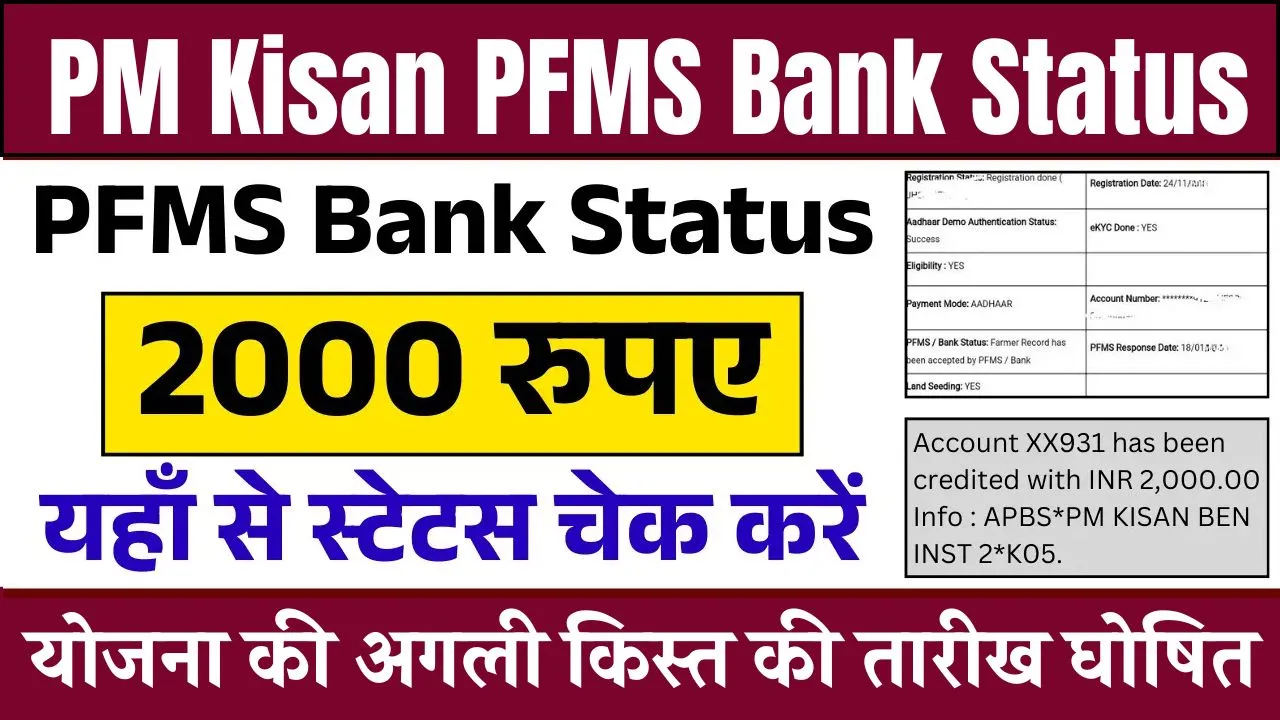Avoiding Common Mistakes in Competitive Exams: Competitive exams play a crucial role in shaping careers, providing opportunities in government and public sector jobs. Every year, thousands of students dedicate months to preparing for exams like SSC, UPSC, Banking, Railways, and State PSCs. Despite their hard work, many fail due to common mistakes that could have been avoided.
Understanding these mistakes in competitive exams and learning how to tackle them can make a significant difference in exam performance. This guide highlights the most frequent errors students make and provides practical solutions to help aspirants maximize their chances of success.
Overview Table
| Mistake | Solution |
| Lack of Proper Planning & Strategy | Develop a structured study plan and focus on priority subjects. |
| Ignoring Previous Year Question Papers | Solve at least 5-10 past papers to understand the exam format. |
| Overconfidence & Avoiding Mock Tests | Take regular mock tests to improve accuracy and time management. |
| Poor Time Management in the Exam Hall | Follow an effective answering strategy to optimize time. |
| Relying Too Much on Coaching Centers | Combine self-study with coaching guidance for better retention. |
| Ignoring General Awareness & Current Affairs | Stay updated with daily news and practice quizzes. |
| Guessing Answers Without Logic | Avoid random guessing; use elimination techniques. |
| Not Revising Regularly | Implement a structured revision plan. |
| Ignoring Health & Stress Management | Maintain a healthy routine with adequate rest and exercise. |
| Not Reading Exam Instructions Properly | Carefully review guidelines to avoid unnecessary mistakes. |
Lack of Proper Planning & Strategy
Many students begin their preparation without a clear study plan. They focus on multiple topics randomly without understanding which areas carry the most weightage. This lack of direction leads to ineffective preparation and wasted effort.
To avoid this, aspirants should create a well-structured study plan covering all sections of the exam. Start by analyzing the syllabus and categorizing subjects based on difficulty levels. Prioritize high-scoring topics and allocate dedicated time for each section. Sticking to a daily schedule ensures balanced preparation while reducing last-minute stress.
Ignoring Previous Year Question Papers
A common mistake among students is focusing solely on books and coaching material while neglecting previous year question papers. Without reviewing past papers, students fail to grasp the exam pattern, frequently asked topics, and the difficulty level of questions.
Solving previous year papers helps in identifying trends and preparing accordingly. Aspirants should attempt at least 5-10 past papers to assess their strengths and weaknesses. Timing each practice session will also enhance speed and accuracy, which are crucial during the actual exam.
Overconfidence & Avoiding Mock Tests
Some students feel confident after completing theoretical studies and assume they are well-prepared. As a result, they skip mock tests, which leads to poor time management and lack of familiarity with the exam format.
Mock tests are essential for evaluating performance. They simulate real exam conditions and help in identifying mistakes before the final test. Taking at least 10-15 full-length mock tests allows aspirants to improve accuracy, reduce mistakes, and develop an effective answering strategy.
Poor Time Management in the Exam Hall
Spending too much time on difficult questions often results in not being able to attempt all the questions in the given timeframe. Many students struggle with this issue due to a lack of proper exam strategy.
A useful approach is to follow the “Easy-Moderate-Hard” strategy. Begin with questions that are easier and quicker to solve, then move on to moderate ones, and finally attempt the tougher questions if time permits. Avoid getting stuck on a single question for too long. Practicing mock tests with a timer will help develop this habit before the exam day.
Relying Too Much on Coaching Centers
Many aspirants assume that joining a coaching center guarantees success, leading them to depend entirely on classroom teaching while neglecting self-study. While coaching institutes provide guidance, they cannot replace individual practice and effort.
Students should use coaching material as a reference but dedicate sufficient time to self-study. Setting daily study goals, referring to standard books, and practicing mock tests are crucial for thorough preparation. Online platforms like Unacademy, BYJU’S, and YouTube can also serve as valuable resources for additional learning.
Ignoring General Awareness & Current Affairs
For many competitive exams, general awareness and current affairs play a crucial role. However, students often prioritize subjects like Quantitative Aptitude and Reasoning while ignoring this section.
To strengthen general awareness, aspirants should develop a habit of reading newspapers such as The Hindu and The Indian Express. Government sources like PIB and Yojana Magazine provide valuable insights into current affairs. Taking daily quizzes on platforms like Gradeup and Testbook also helps in retention. Revising the past six months of current affairs before the exam ensures better performance in this section.
Guessing Answers Without Logic (Negative Marking Trap)
Many students attempt questions based on guesswork, especially when they are unsure of the correct answer. This approach can be risky in exams with negative marking, leading to unnecessary loss of marks.
Instead of blind guessing, students should use the elimination method to rule out incorrect options. Attempt only those questions where they have at least a 50% certainty of the correct answer. If unsure, it is better to leave the question unanswered rather than risk losing marks.
Not Revising Regularly
Students often focus on learning new topics while neglecting revision. Without regular revision, important concepts fade from memory, making it difficult to recall information during the exam.
Following a structured revision plan can help in better retention. A three-step approach to revision includes:
- Daily Revision: Reviewing what was studied earlier in the day.
- Weekly Revision: Going through important notes, formulas, and key topics.
- Monthly Revision: Solving previous year papers to test knowledge.
Using flashcards or mind maps can also make revision more effective.
Ignoring Health & Stress Management
Exam preparation often leads students to compromise on their health. Long study hours with little rest can lead to fatigue, decreased concentration, and stress, affecting overall performance.
Maintaining a healthy routine is essential. A good sleep cycle of 6-7 hours, regular exercise, and short breaks between study sessions can enhance focus and productivity. Light physical activity, meditation, or even a short walk can help reduce stress and refresh the mind.
Not Reading Exam Instructions Properly
Many students overlook important exam guidelines, leading to errors such as filling incorrect details on the answer sheet, missing deadlines, or forgetting essential documents.
To avoid such mistakes, students should carefully read the instructions before the exam. Checking the exam center location in advance, arriving at least an hour early, and carrying all required documents like admit card and ID proof can prevent last-minute panic. Reviewing official exam websites for updates ensures staying informed about any changes.
Conclusion
Avoiding common mistakes in competitive exams is essential for success. A structured study plan, consistent practice, and time management strategies can significantly improve performance.
Regular mock tests, solving previous year papers, and revising key concepts ensure a well-rounded preparation. Staying updated with current affairs, maintaining good health, and following exam guidelines further enhance an aspirant’s chances of success.
With dedication and the right approach, cracking competitive exams becomes a more achievable goal.
FAQs
How can I improve my time management during exams?
Practicing mock tests under timed conditions and following the “Easy-Moderate-Hard” strategy will help in managing time effectively.
Why should I solve previous year question papers?
Past papers provide insight into exam patterns, frequently asked topics, and the difficulty level of questions, making them an essential part of preparation.
Are coaching centers necessary for clearing competitive exams?
Coaching can be helpful, but self-study and consistent practice play a more crucial role in success.
How can I stay updated with current affairs?
Reading newspapers, following government publications, and taking daily current affairs quizzes will help in staying informed.
What is the best way to avoid negative marking?
Avoid guessing blindly. Use elimination techniques and attempt only those questions where you are reasonably sure of the answer.










